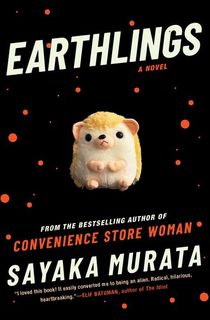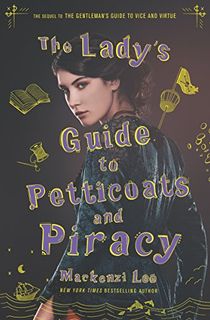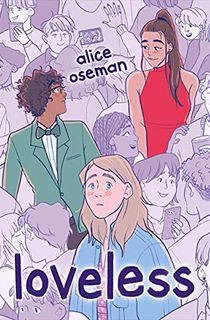Characters who are asexual—meaning that they do not experience sexual or romantic attraction to others on what is considered a “normal” basis—don’t always have the best reputation in the world of fiction. Not necessarily because they are morally ambiguous, unattractive, or unlikeable characters, but because their asexuality alone stands as an unmarketable drawback.
We’re in the most active “sex sells” generation of media consumption of all time and a vast majority of readers expect their characters to engage in some sort of heteronormative or even homosexual behavior for entertainment purposes. It’s very telling that asexuality in fiction is such a niche, and that most readers cannot quickly summon a sex-repulsed or sex-neutral character to mind, other than perhaps Jughead Jones from Archie Comics. Not the worst example, but not the best either. Jughead’s “girls have cooties” attitude throughout the series is often regarded as a joke and as an indication of delayed maturity, unfortunately.
This quartet of authors thinks differently, seeing in their asexual protagonists the potential of exciting, fully bodied storytelling where others may see rigidity, boredom, and empty emotional spaces that need to be filled, or problems that need to be “fixed.”
These LGBTQ+ characters are complex, serious, ambitious, passionate, three-dimensional, and capable of love in ways the average reader may not expect and might experience the pleasure of being introduced to for the first time. There is something of a defiance on this type of fiction, a fierce reclaiming of identities from a harmful mainstream narrative.
“Why have I let the world convince me I’m not enough without romance?” writes author Alison Cochrun in The Charm Offensive. Below, discover four books by outstanding authors who strive to represent asexuality in ways that are meaningful to them and not tailored to any sort of negative stereotype or cliché.

The Bone People
“They were nothing more than people, by themselves. Even paired, any pairing, they would have been nothing more than people by themselves. But all together, they have become the heart and muscles and mind of something perilous and new, something strange and growing and great. Together, all together, they are the instruments of change.”
New Zealand-based author Keri Hulme, who identified as asexual herself throughout her life, collected a Booker Prize for this magnum opus, disapproving the myth as early as the 1980s that asexuality is unworthy of recognition.
Hulme’s protagonist Kerewin Holmes, a woman of mixed Maori and European descent, lives a life of solitary contemplation in a seaside tower on the coast of the South Island. She has made peace with her disinterest in romance and sex, but that doesn’t mean she isn’t open to opportunities to explore love and connection with others.
These opportunities present themselves in the form of a mute, troubled child and his foster father, a dysfunctional dynamic in which Kerewin becomes entwined as an honorary family member. No romance takes place between Kerewin and any adult character, and so the novel’s focus is on the chaotic process of healing from trauma and the power community and spirituality serves in that process.

Earthlings
“Love is a drug made in the brain to enable humans to mate. It’s simply an anesthetic. In other words, it’s an illusion made to prettify the painful mating act, to reduce the suffering and disgust of the sexual act. We might be able to use this anesthetic if we’re ever in pain. But for now I don’t think it’s necessary.”
From the author of The Convenience Store Woman, Murata’s novel studies love, romance, and sex as imposed social orders rather than pleasures that every human being must experience for validation.
Natsuki, the protagonist, feels like the world regards her as a freak and she subsequently embraces it. She spends her childhood with her cousin Yuu escaping into fantasy worlds where her “strangeness” is explained away by her being a witch or alien. When their bond is broken, and Natsuki enters the unvarnished and unmagical adult world where she’s expected to function by other’s standards, she struggles to cope.
Her family wants a baby out of her, and all she wants is to return to her childhood escape routes and find peace and contentment with herself again. This novel has been expertly translated from Japanese-to-English by Ginny Tapley Takemori, but none of the messages or insights about asexuality have been lost.

The Lady's Guide to Petticoats and Piracy
“I have spent so long building up my fortress and learning to tend it all myself, because if I didn’t feel I needed anyone, then I wouldn’t miss them if they weren’t there. I couldn’t be neglected if I was everything to myself.”
Here’s an adventurous novel for readers looking to see an asexual protagonist lead a life of nonstop action. Felicity Montague starts off the novel exhausted but exhilarated from a wild Grand Tour across Europe with her brother, but she’s not burned out of energy yet.
Determined to avoid the institution of marriage (despite the persistent pestering of what is considered by others to be a suitable suitor) and embark on a career as a doctor—a mountainous and near impossible undertaking in Victorian England—Felicity schemes to make her dreams of personal success a reality. She recruits a rich young woman in her enterprise, and the two set off for Germany in search of a mentor for Felicity’s medical studies.
Lee’s main character is so disinterested in romance and nuptials that she makes it a priority to avoid them by any means necessary, hence her perpetually restless nature. It is her intelligence and forever unsatisfied appetite for experience, knowledge, and self-improvement that drive this unique historical novel forward.

Loveless
“I couldn't admit to them how desperately I wanted to be in a romantic relationship. Because I knew it was pathetic. Trust me. I completely understood that women should want to be strong and independent and you don't need to find love to have a successful life. And the fact that I so desperately wanted a boyfriend - or a girlfriend, a partner, whoever, someone - was a sign that I was not strong, or independent, or self-sufficient, or happy alone. I was really quite lonely, and I wanted to be loved.”
This is a novel for the modern reader and presents perhaps the most relatable protagonist in terms of how she utilizes technological creative outlets as a form of expression and built-up frustrations.
Georgia Warr is eighteen years old and she feels like she’s been left behind in the race to achieve romantic milestones. She’s never been in a relationship, she’s never kissed anyone, and she feels incapable of even holding feelings of attraction. Naturally, lacking the resources and support to bring her reassurance about her asexual identity, Georgia feels something is wrong with her. She communicates her longing for regular experiences by writing fanfiction and living vivaciously through this hobby.
When she enters Durham University as a student, she throws herself into a whirlwind campaign to find love and “resolve” her issues but discovers throughout the process that what she really might be looking for is herself.



